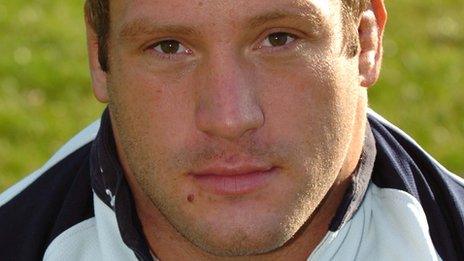'Steroid abuse off-the-scale in Welsh grassroots rugby'
- Published
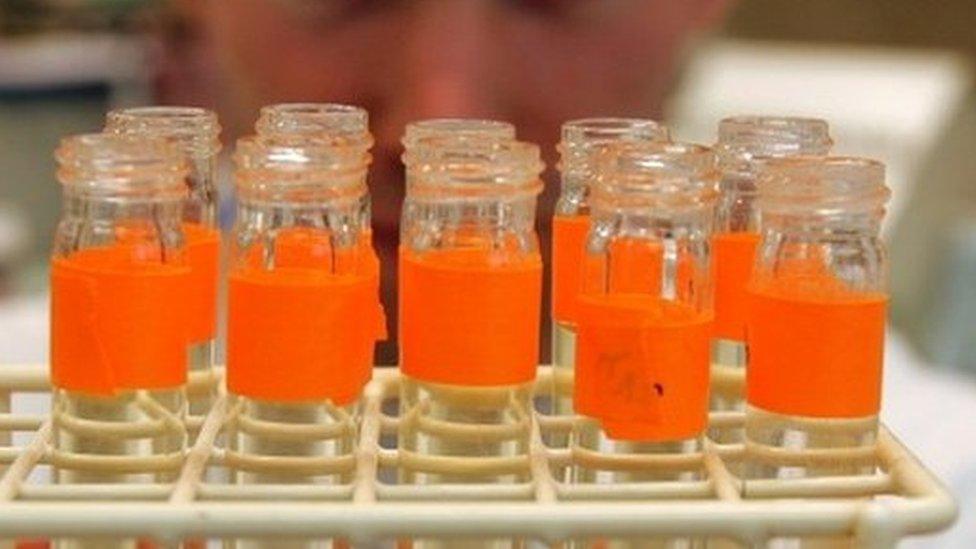
Steroid abuse is "off-the-scale" in Welsh grassroots and semi-professional rugby, it has been claimed.
UK Anti-Doping figures reveal players from Wales make up 33% of all sportsmen and women serving drugs bans.
An ex-player, who took drugs, told BBC Wales' Week In Week Out programme he is surprised more have not been banned.
But WRU, external chief Martyn Phillips is not "overly concerned" because the number tested is proportionately higher than in other rugby unions and sports.
The player, who would not be named, said: "It's totally off-the-scale. I think people are probably blind to it and if the truth came out I think there would be probably a lot more players who are banned from playing."
Anti-doping expert Prof Yannis Pitsiladis said it was easy for cheats to avoid being caught because drugs leave the body quickly
The numbers caught are a small percentage of the thousands that play rugby, however 17 Welsh rugby union and league players, from grassroots to semi-pro, are currently banned, with the majority found to have traces of anabolic steroids in their systems.
Ten of those banned are from rugby union and form the majority of the 16 players banned from the sport across the UK.
UK Anti-Doping said the other seven are among 14 players banned from rugby league.
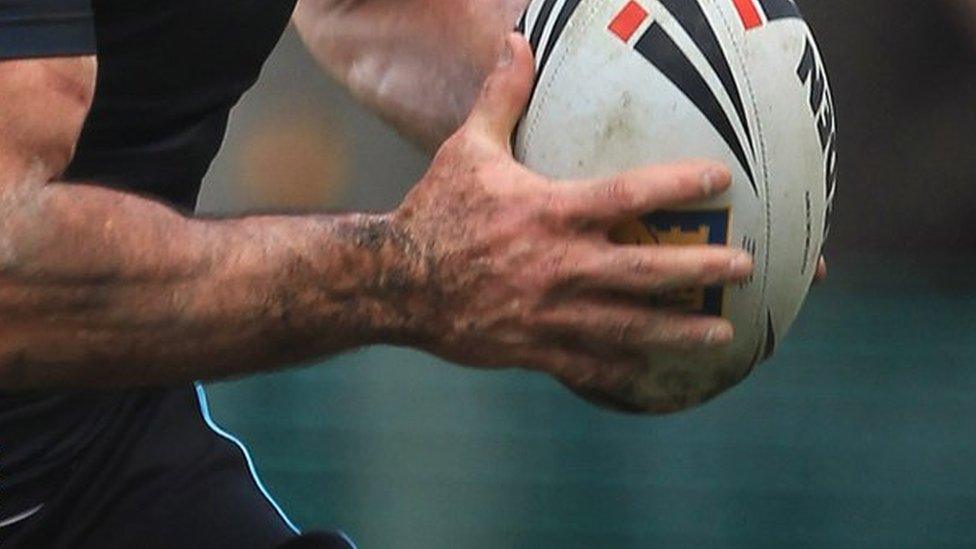
The programme questioned 100 players from grassroots rugby union clubs and found 15 admitted to using some form of performance enhancing drug.
Only five of that 100 said they had been drug tested in the past three years.
Anti-doping expert Prof Yannis Pitsiladis, from the University of Brighton, said: "They can be quite confident when they go into testing that they won't be caught because the current testing will not be able to detect those drugs, because they are no longer in the system."
But he said improvements in anti-doping technology and the ability to now keep samples for up to 10 years means athletes currently cheating may be caught in the future.
UK Anti-Doping's chief executive Nicole Sapstead admitted keeping up with drug cheats is a constant battle.
"I think if people really want to cheat the system they'll find a way," she said.
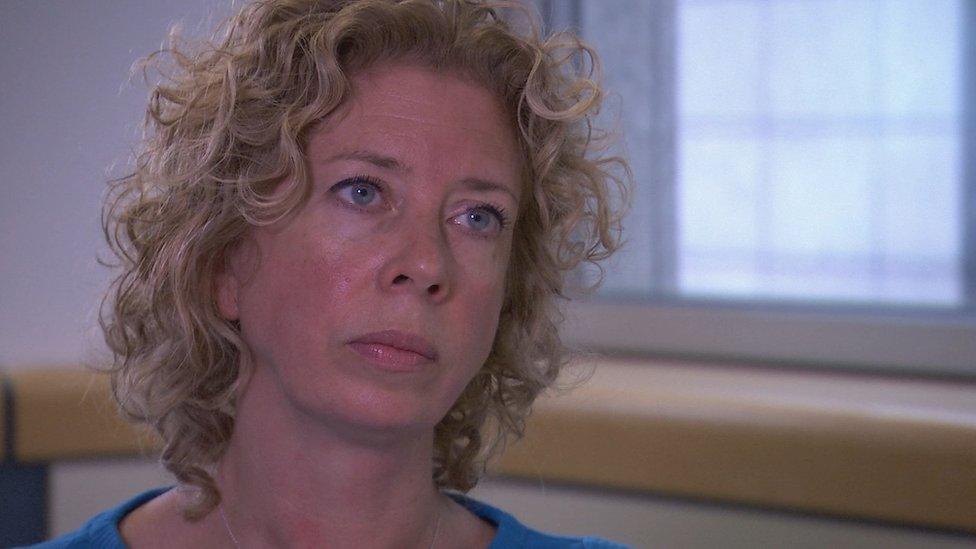
UK Anti-Doping's chief executive Nicole Sapstead admitted keeping up with drug cheats is a constant battle
"In an ideal world we'd be testing all sports all the time but that's not a reality for any anti-doping organisation in the world."
Last week Merthyr Rugby Club player Owen Morgan, 25, and Glynneath RFC's Greg Roberts, 28, were banned for four years and two years respectively.
Mr Morgan tested positive for the anabolic steroid drostanolone and the stimulant benzoylecgonine, a metabolite of cocaine.
Mr Roberts tested positive for tamoxifen, which can be used for cancer treatment.
WRU's Mr Phillips said: "It's a problem in society to start with.
"I wouldn't sit here and say that it's not an issue in rugby because the fact that one player getting banned is one too many as far as I'm concerned.
"So the challenge for us, not just in rugby but in sport generally, is we've got to try and get it out of the game. I don't think that's going to be easy.
"The fact that we've caught people suggests there's an issue. So my job now is to get closer to that and to make sure we just become the best we can be to try and remove the problem."
Chris Thair, chief operating officer of Wales Rugby League, called the figures a "wake-up call".
He said: "It's a spike in the figures compared to previous years and it's not a great situation for the sport to be in.
"It's not just a rugby issue, it's a huge global issue for all sports, and it's a challenge for everybody and we've got to do more."
Week In Week Out, Rugby: Dirty Steroid Secret? Tuesday, 24 November, at 22:35 GMT on BBC One Wales
- Attribution
- Published16 November 2015
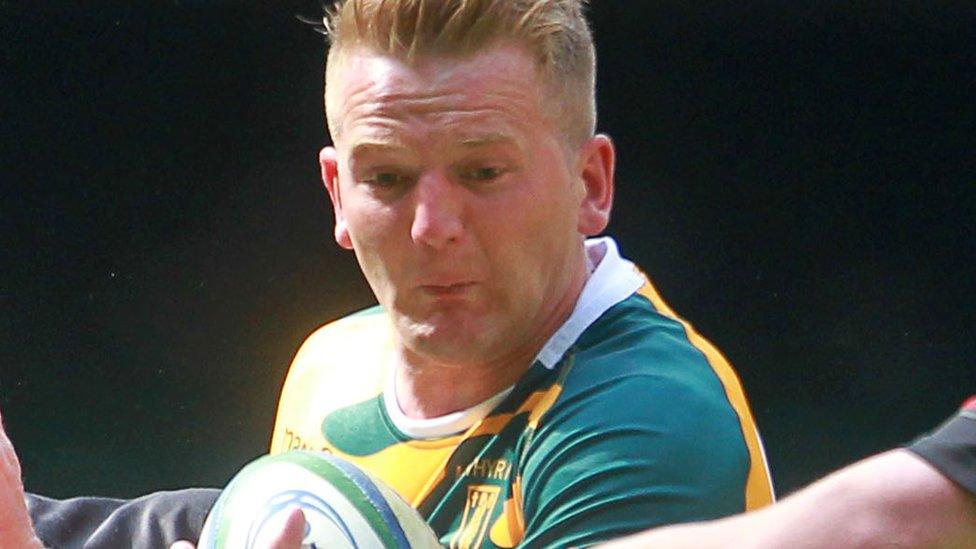
- Attribution
- Published22 September 2015
- Published3 March 2015
